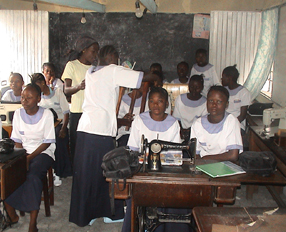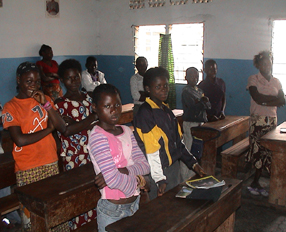
As far as access to education is concerned, the problem can be expressed in terms of the low schooling rates, the high level of absenteeism, and early school-leaving owing to high cost that education represents for many families who live in a situation of widespread poverty. This situation particularly affects girls, who miss out on a school education as a result of staying at home to look after their siblings.
The poor quality of education is due to numerous factors such as the non-existence of pedagogic materials, given their high cost, lack of motivation among teachers, deficient school facilities and steadily deteriorating school infrastructures.
This Agreement searched to improve primary education, vocational training, education for street children, adult literacy and teacher training, for which purpose three basic instruments were used:
- Headteacher/teacher training.
- Construction and refurbishment of building.
- Improvement of pedagogic equipment and materials.
All the local partners were established Congolese institutions with experience in the education sector. Each organization, according to its speciality and responsibilities, was in charge of carrying out various activities set out in the Agreement in order to give greater coherence to the intervention. To this end, the intervention procedures were determined and an Agreement Execution Committee was created.
The Agreement also provided institutional support and strengthening of the different local partners, both in the education sector and in the management and coordination of international cooperation actions.
The proposed courses of action coincided with the strategy established in the AECID’s Master Plan and also tied in with the Congolese government’s policy as defined in the Document de stratégie pour la réduction de la pauvreté 2005, which emphasises the importance of education as a means of combating poverty in a country where over half the population is under the age of 18.






.jpg)